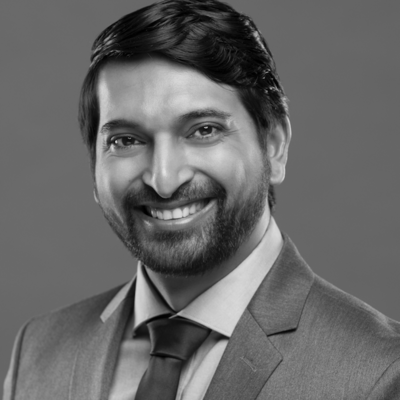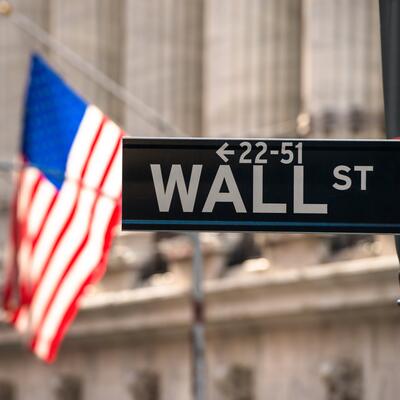
Big Money: Investment Managers Driving Corporate Action
Guests

Cynthia McHale

Dylan Tanner

Shane Khan

Yasmin Dahya Bilger
Summary
More than half of Americans are invested in the stock market, either directly or through their retirement funds, and yet most of the leverage to direct that money rests with large institutional investors – like the companies that manage those retirement funds.
“The financial risks posed by the climate crisis continued to be front and center of investors’ minds,” says Cynthia McHale, senior director at Ceres, where she leads the Climate Action 100+ initiative. She says the 700 investor signatories to that initiative continue to actively engage with companies in their portfolios, “leveraging their ownership stakes to ensure that the world’s largest corporate greenhouse gas emitters take necessary action on climate change.”
Dylan Tanner, executive director of Influence Map, says large commercial institutional money managers are followers rather than leaders. “I think the leaders in terms of the investment community are coming from the pension funds and the actual asset owners who are one step away from the money, who own the money, and they have a longer term of perspective. And they are actually driving the issue to their commercial managers who have to service them and they’re saying ‘look, we want you to act on climate change’ and that's a huge driver.”
Tanner says governments and regulators are held back from climate action policies by inertia and vested interest lobbying, including by fossil fuel companies, in spite of the IPCC consensus on what’s needed to address the climate crisis.
“The solution to climate change needs to be strong binding government regulations to limit polluting emissions, which is what’s causing climate change. Without that we won't have a solution. Finance and involuntary corporate action or citizen behavior is not gonna get us there.”
Anyone who has money invested in a mutual fund or retirement account faces looming climate risk that could dramatically impact the value of their savings. Disclosing that risk has become a chief concern of many climate-conscious investors and the Securities and Exchange Commission. According to the SEC, in recent years, about a third of corporate annual reports included some climate risk disclosure. The SEC is currently advancing a framework that would apply to all publicly traded companies. Cynthia McHale says this action is incredibly important.
“It’s essential for investors to be able to choose and price risk appropriately. Without the information available to them in a consistent, reliable way, they simply can't do their jobs well. And that affects their portfolios and every one of us, in fact, every one of us who has a pension, who has a retirement account, on down the line if you’ve got a kid in college in a 529 plan. Every one of us is affected if we don't know the risks related to climate change.”
Shane Khan with JUST Capital says that their polling shows a majority of Americans support corporate disclosure of climate data, whether it’s voluntary or mandatory.
Divesting from fossil fuels has been a strategy for a long time for those concerned about climate. But Yasmin Dahya Bilger, head of ETFs at investment firm Engine No. 1 argues for engagement, rather than divestment.
“Publicly traded companies are like little quasi democracies, they are accountable to their shareholders. So, when you buy a company, you’re not only entitled to just a share of its profits, you're entitled to the right to influence its decision-making. And this whole system is called proxy voting and it's a very powerful tool,” Bilger says. She adds that there are 20% more environmental and social-related shareholder proposals this year than last, and they have growing support.
“Twelve climate-related proposals passed last year. That's up from three in 2020 and zero in 2019,” she says.
This episode was supported in part by The ClimateWorks Foundation.
Related Links:
Full Transcript
Greg Dalton: This is Climate One. I’m Greg Dalton. Money managers wield a lot of power to push companies to act in the interests of their shareholders.
Cynthia McHale: The financial risks posed by the climate crisis continued to be front and center of investors’ minds.
Greg Dalton: Increasingly, active investors are making corporations quantify and address their climate responsibility in order to protect their investments.
Yasmin Dahya Bilger: When you make a strong shareholder value argument, you make it easy for other shareholders to come along with you.
Greg Dalton: But how much can tinkering with stock markets put us on the right course?
Dylan Tanner: The solution to climate change needs to be strong binding government regulations to limit polluting emissions. Finance and voluntary corporate action or citizen behavior is not gonna get us there.
Greg Dalton: Investment Managers Driving Corporate Action. Up next on Climate One.
Greg Dalton: How much can capital markets drive reductions in greenhouse gas emissions? More than half of Americans are invested in the stock market, either directly or through their retirement funds, and yet most of the leverage to direct that money rests with large institutional investors - like the companies that manage those retirement funds. So how are those asset managers accounting for climate risk? And how can they drive corporate leaders to be more accountable for their emissions today, and cut emissions tomorrow? I invited three financial industry experts to discuss these questions. Cynthia McHale is Senior Director at Ceres, where she leads the Climate Action 100+ initiative. Dylan Tanner is Executive Director of Influence Map, a think tank. Shane Khan is Head of Research at JUST Capital. This episode was supported in part by The ClimateWorks Foundation. In a recent report, InfluenceMap found European corporations more supportive in the last four years of policies in line with the Paris Climate accord. But that was before Russia's invasion of Ukraine, which has shocked and upended global energy markets and sent Europe scrambling for non-Russian energy sources. I asked Dylan Tanner about the impact of the current war.
Dylan Tanner: So, this is a trend that's been in play even before the Paris agreement. European companies feel under social pressure, environmental regulatory pressure to act on climate change and other environmental issues. And, you know, Europe does not have a huge fossil fuel production industry and the positive lobbying is coming from the demand-side and the electric power sector. So, those mechanisms remain in place and we see actually a lot of the root cause of the pivot to Russia over the last 10 years coming from the lobbying power of the fossil industry. Players like Gazprom and others who seem to have borrowed their way into the European regulatory mechanism in the German government in particular. So, we actually see that this is an opportunity for the renewable energy sector to double down on their calls for much greater ambition in Europe on their low carbon power pathway.
Greg Dalton: Right. And there’s quite a thing going out there: more fossils, more renewables. How is Ukraine gonna do that. Cynthia, coming out of the Glasgow Climate Summit last year there was momentum toward decarbonizing lending and equity portfolios of banks and asset managers, lot of work done there. How is the war in Ukraine and its effect on global energy markets impacting that momentum now?
Cynthia McHale: I mean we’re seeing just ongoing significant momentum on the part of our investors to drive corporate leaders to shift away from climate disrupting business practices. I mean the financial risks posed by the climate crisis continued to be front and center of investors’ minds. We have 700 investor signatories to Climate Action 100+ continuing actively to engage with companies in their portfolios and thus leveraging their ownership stakes to ensure that the world’s largest corporate greenhouse gas emitters take necessary action on climate change. These institutional investors believe that engaging and working with the companies in which they invest to secure greater disclosure of climate risks and robust company emissions reduction strategies is entirely consistent with their fiduciary duty and essential to achieve the goals of the Paris agreement.
Greg Dalton: Right. And we’ll get into how, there are some I think some counter pressure to those trends because the disruption that’s happening in markets now and the need to get non-Russian energy into Europe. Shane Khan, JUST Capital promotes a kinder, gentler capitalism. How is the war on a sovereign democracy in Europe impacting the conversations and companies involved with your work across a broad set of social issues?
Shane Khan: I think one of the key points that we've always remarked on from JUST Capital is the view of the public, which really does drive how we speak with companies and what are the major issues that companies should actually be taking action on. And issues such as workers issues, climate issues, issues on customers etc. they continue to be important year after year. So, we know that the public for example, they do think that climate change is an issue and companies do have a part to play in reducing greenhouse gas emissions and to meeting climate commitments overall. And I think that's the conversation that we continue to have with companies, whether or not this war has happened.
Greg Dalton: Dylan, I’d like to, you know, there's a rush to get more gas into Europe. That means you know potentially funding and building liquefied natural gas export terminals, new infrastructure, etc. that requires capital. Is there interest in capital markets now in funding these things under the veil of you know, protecting and promoting peace in Europe?
Dylan Tanner: So, I mean finance in general, investment industry I mean I think is agnostic. And if it sees a profit to be made in the short medium long term someone will come in and fund this stuff. So, the solution has to be real economy government regulations to ban or to make higher cost of the brown and polluting industries. That said, there are parts of finance which are longer-term and see those climate risks that Cynthia mentioned and that we work closely with I think that’s the engine of the Climate Action 100 process and these are asset owners, the pension funds, the wealth funds and the insurance companies who are not so transactional they’re not interested in a deal to be done today. And they are in fact often mandated by their governments to take into account climate risk. So, I think those players will step up in this instance and you know if you are investing for a 10-year horizon which you have to do with gas they will, let’s do it with renewables. And we’ve seen movements like that in the UK, where they’re pivoting towards onshore wind, which before the invasion was politically unviable because of the NIMBY factor. So, I think we’re gonna see both sides lobby for investments and putting forward their money.
Greg Dalton: So, there might be short-term energy traders who see an opportunity in this chaos to profit. But you’re saying the patient money, the long-term money, insurance wealth funds etc. will be looking at well, yeah, if we build this natural gas plant maybe it's good for a couple of years, but is it gonna be viable for 10 or 20 years is a lot different calculation. Cynthia, before we continue talking about financial markets and carbon risk. I want to get to the personal level. We talk about, it’s easy to talk about numbers up in our heads. These conversations are often that way, but bombing hospitals and other war crimes in Ukraine and people literally being burned and flooded out of their homes by extreme events amplified by burning fossil fuels. This is a very human story. How do you balance a tendency among money people to focus as Dylan just said they’re agnostic they just look at the monies? How do you balance that with the humanity of what's going on?
Cynthia McHale: Yeah, well, I think that the climate crisis is absolutely a human crisis, right. So, if we look at the many extreme weather events, hurricane, floods, wildfires, droughts, or just chronic changes in weather patterns and the devastation that that is bringing and the food shortages as we go forward in time, you know. I think that what we’re seeing with this horrible situation in Ukraine is really to some degree will be dwarfed, when you look at the longer-term climate impacts. And I think that the investors get that. I mean, BlackRock announced their goal to invest 75% of its corporate and sovereign assets and issuers with science-based climate goals. So, that is in issuers that have committed to aligning their businesses with the goals of the Paris agreement. So, that's a significant commitment for BlackRock, the world's largest asset manager, and that's an increase from BlackRock's prior goal of 25%. It’s quite ambitious and quite significant, and it will hasten this transition to a net zero emissions economy.
Greg Dalton: And we’ll talk a little more about BlackRock in a minute. Dylan, how do you cope with what you know about the climate emergency while you know Ukraine burns and the big lie thrives here in the US?
Dylan Tanner: How do I cope? I run an NGO with 50 talented team members. And a lot of them are, actually, I am the old man in the house. I double most of their age. And so, we have sessions where they actually, you know, this is to some extent all they've known, you know, the previous administration and the pandemic and now this war raging again in Europe and before then they were teenagers. So, I have to try and be the adult and say look, things in the long-term trajectory are getting better. It doesn't seem that way now, but there are forces that we are working with that want to see things done. We just have to isolate and identify the disruptors and the misinformation and people are taking advantage of the situation and try and neutralize them. And they’re mission driven people and so that's why we do our work.
Greg Dalton: Shane, do you ever worry that tinkering around the edges of late stage capitalism is akin to rearranging the deck chairs on the Titanic?
Shane Khan: Oh, what a wonderful analogy, Greg. Certainly not, I mean, I think there's a real need for the kind of work that JUST Capital does and again we’re rooted very much in the views of the American public and maybe I can bring it back to the environment conversation. We typically ask in our polls to figure out what the most important issues are. We asked the American public to make trade-offs. Is this more important than that? Is a living wage more important than the greenhouse gas emissions? And typically, we find that the environmental issues they come in closer to the bottom of the list of the issues overall, because we’re asking the public to trade up something very close to them. Do I make money? Can I put food on the table? Against something that might be slightly removed. But let's start thinking about this younger generation. When I look at our data a little bit more. I actually find there are generational shifts in how people think about this. And the youngest people, they tend to think about climate greenhouse gas emissions pollution also as issues that are much more important. So, they tend to actually think those are more important than other more immediate issues because for them they've grown up with this. They've seen wildfires, they've seen droughts. They’ve seen disruptions and soon they will start seeing increases in their home insurance rates because of storms coming up on the East Coast, for example.
Greg Dalton: Right. My home insurance was actually canceled because of the wildfires. Dylan Tanner, Pres. Obama got the Affordable Care Act through Congress by bringing on board the insurance industry, a very powerful lobby. That provided enough muscle to counter hospitals, pharma and other powerful interests. As you look at corporate America and climate, what are the big power centers and where are they aligned and intentioned? You mentioned for example, that Europe doesn't have a big fossil fuel extraction industry, the US does. What are the big power centers here?
Dylan Tanner: I’m glad you asked because this is one of our core programs measures just that. And it finds that, you know, the way lobbying works, which is what we’re talking about here how to influence government policy. The sectors or companies who are gonna be negatively affected mostly are the ones who are the most tactically and proactively involved in lobbying to stop whatever is coming. And the others just sort of do not get involved; stay in your lane and if it's not your issue then you keep your nose out as kind of the agreement between company or not, not agreement, but that's the practice. So, using our data we’re trying to encourage tech healthcare finance even to get more actively involved in lobbying the administration and the state levels for this ambitious climate policy that’s needed. It hasn't worked thus far. We've seen what happened to the reconciliation bill and in its climate measures we saw the fossil fuel industry win out yet again but that's what needs to happen in the US. And in Europe the fossil sector doesn't have the upper hand anymore in the lobbying process around climate.
Greg Dalton: InfluenceMap recently did a report on the US Chamber of Commerce. There’s been rumblings that the chamber, the most powerful business lobby in the US is shifting a little bit. Your report stated that financial firms favored disclosure of carbon risk while the rest of the chamber itself is opposed. There’s a chart in there pretty interesting that says most of the chambers opposing and J.P. Morgan and Bank of America, which have a lot of fossil fuel loans mixed and then Wells Fargo, Citi, Barclays. BlackRock’s been mentioned Prudential, all supporting financial disclosures. So, talk about the power dynamics there where you kind of have the financial sector against everybody else.
Dylan Tanner: So what goes on in the chamber in how they make their decisions as a black box even though I understand that some of their members when it comes to climate and energy policy. And this is a kind of a sector of society which is opaque but yet extremely powerful. Chamber of Commerce, its activities in both money flows and going to Congress in the Senate saying look, we represent corporate America. Unless you do this the economy is sunk is an extremely powerful influence. And it’s been in some ways hijacked and weaponized by the fossil sector. So, the chamber was opposing this stuff but powerful members have opposite opinion. So, you have this undemocratic result from the chamber that's being projected as the voice of corporate America, which is a huge problem.
Greg Dalton: Today we’re talking about the power of money managers to advance climate action. Our podcasts typically contain extra content beyond what’s heard on the radio. If you missed a previous episode, or want to hear more of Climate One’s empowering conversations, subscribe to our podcast wherever you get your pods. Coming up, the closing window for action from investors, and everyone else:
Cynthia McHale: This is the decade right now where either the US and the world moved to align with the goals of the Paris agreement to limit global warming to well below 2°C or we don't. Because once we get to 2030 there’s no going back.
Greg Dalton: That’s up next, when Climate One continues.
Greg Dalton: This is Climate One. I’m Greg Dalton. We’re talking about the power of capital markets and climate with Cynthia McHale of Ceres, Dylan Tanner of Influence Map, and Shane Khan of JUST Capital. Anyone who has money invested in a mutual fund or retirement account faces looming climate risk that could dramatically impact the value of their savings. Disclosing that risk has become a chief concern of many climate-conscious investors and the Securities and Exchange Commission. According to the SEC, in recent years, about a third of corporate annual reports included some climate risk disclosure. But the SEC is advancing a framework that would apply to all publicly traded companies. Cynthia McHale says this action is incredibly important.
Cynthia McHale: The SEC chair Gary Gensler’s goal is to provide all investors with consistent comparable decision useful information related to companies’ climate risks. And he's gone on to say investors with 130 trillion in assets under management have requested that companies disclose these risks. So, it's really important, it’s essential for investors to be able to choose and price risk appropriately without the information available to them in a consistent, reliable way they simply can't do their jobs well. And that affects their portfolios and every one of us in fact, every one of us who has a pension, who has a retirement account on down the line if you’ve got a kid in college in a 529 plan. Every one of us is affected if we don't know the risks related to climate change.
Greg Dalton: Shane, you’ve done polling on this. What do Americans think about the types of rules the Securities and Exchange Commission is developing on disclosure?
Shane Khan: Transparency is such a key issue for the American public. And we've looked at this in 2021. We've looked at it 2022. And overall a majority of Americans support corporate voluntary disclosure of climate data. Now, if the SEC does go ahead with this proposal and it becomes mandatory, Americans also support that. We do see some splits between Republican and Democrat support. Democratic support is nearly universal: about 97% of Democrats support corporate disclosure of climate data as opposed to 74% of Republicans. For myself as an ESG researcher I've been looking at the Russell 1000 data and we found that only about 57% of those companies and these are America's largest companies only 57% of them actually disclose about on Scope 1 and Scope 2 emissions so far.
Greg Dalton: Can you unpack a little bit for us Shane, ESG and Scope 1 and Scope 2.
Shane Khan: ESG refers to a field of study and research on environmental, social and governance. And when it comes to Scope 1 and Scope 2, Scope 1 refers to direct emissions from a company itself, things that you own, things that you control, such as your vehicles which deliver goods for example. Scope 2 are indirect emissions and that comes from the generation of purchased energy. Scope 3 is anything that's indirect that comes from a value chain both upstream and downstream and it includes things that such as products and how they are used and the emissions that they give off after they are bought by a consumer.
Greg Dalton: Right. Like the gas we burn in our cars, that sort of thing. But Dylan, you know, we hear that transparency is popular with the American public, well, so our background checks on guns, things that don't get into policy. There's lots of things that the American people support the don't get into law, which gets to the point about the concentration of power and lobbying that you focus on.
Dylan Tanner: Disclosure does not equal emissions reduction. You could have companies disclosing terrible emissions in a wonderful way. So, you do need to link that with some kind of force to make emissions reductions happen regulatory or in you know in the investment theory that investors would apply pressure on the companies who disclose the worst emissions performance.
Greg Dalton: Right. And Cynthia, it’s proxy season in the US and that means that shareholders will be voting on various proposals in the democracy of corporations. And one high profile proxy measure at Berkshire Hathaway would require Warren Buffet’s company to measure, disclose and reduce its greenhouse gas emissions in line with goals of the Paris agreement. So, what's generating buzz this season and what could be the result of these shareholder actions this time around?
Cynthia McHale: We have a super active season right now coming up with the AGMs. So, we’re tracking --
Greg Dalton: Annual General Meetings of shareholders.
Cynthia McHale: Yes, thank you. Annual General Meetings with shareholders. So, we’re tracking 209 climate-related proxy resolutions this year that’s an all-time record. Of them the largest percentage ask for companies to adopt greenhouse gas reduction targets. Another large percentage of the shareholder resolutions asked companies to report on their climate lobbying practices often specifically asking for report on how they’re lobbying and that of their trade associations align with the goals of the Paris agreement. Also, some resolutions filed at bank and insurance companies ask that the companies commit to stop financing fossil fuel expansion. And last but not least, investors are placing a growing emphasis on proposals seeking to address the need for companies to fully and transparently account for climate risks in their audited financial statements and holding company directors and their auditors responsible.
Greg Dalton: Auditors. That's interesting. So, just a note here this is Wall Street acting. This is not some policy government interaction. This is capitalism saying we got to get a handle on this. Cynthia, some companies agree to shareholder proposals before a vote and keep the goals private. It's kind of like a plea bargain. I was unaware of that. How widespread is that and what impact does it have?
Cynthia McHale: You know, Greg, that is a real concern of mine. The majority of investors do not disclose the withdrawal agreements that they make with companies. Without other investors, shareholders in these companies knowing what that company has agreed to for the withdrawal, it really undermines their ability to hold them accountable.
Greg Dalton: And Dylan, in the past these things have been, the shareholder resolutions have been advisory please do this not binding. Then Engine No. 1 comes along, we’ll talk to them later in this episode, and they like put in three new board members on the Exxon board. That's a whole another level of shareholder pressure and activism. What do you see as the spectrum of this kind of gentle suggestion to like you know barging into the boardroom?
Dylan Tanner: So, there are far more shareholder resolutions in the US than any other market. And I think it’s because they are advisory and so it’s just a more of a messaging thing sometimes. But when it comes to actually voting down directors that's a whole different ball game; then the fun stops in the companies because their jobs are at risk. So, I think that will become a focus in these climates’ resolutions increasingly, as if you're not performing on climate, we’re gonna vote you off the board type of thing or vote the CEO out if that can be done. So, in other markets like Australia they are binding and they have to -- so a lot of the resolutions are far more negotiations between the companies and whoever is filing is far more coming from a higher level as the CEO kind of dealing.
Greg Dalton: Cynthia, you mentioned earlier, BlackRock has increased its ambition around moving to the clean energy transition. Texas has said that no financial institution that has divested from fossil fuels can underwrite bonds or manage money for the state that affects university endowments, pension funds, municipal bonds to build bridges, roads and schools. That loss sent a chill through financial markets and prompted BlackRock to boast that it has a $91 billion invested in Texas energy companies. How do you see that Texas measure affecting of the financial markets?
Cynthia McHale: Yeah well, you know, honestly, I can't speak specifically to the Texas measure. But look, let’s be honest here, there are many states, right? And indeed, our country has a huge fossil fuel industry that continues today. And this is going to be a very tough transition for us. There are many fights to be had. Now, the reality though and this is what our investors that we work with know, is that if we don't get a handle on climate change and we don't limit the degree of global warming, these are systemic economy wide risks to their portfolios. And they will not be able to achieve their financial goals nor the goals of their many pensioners and people that rely on them if these changes aren't taken at speed. And look, the window of opportunity is closing here. This is the decade right now where either the US and the world move to align with the goals of the Paris agreement to limit global warming to well below 2°C or we don't. Because once we get to 2030 there’s no going back.
Greg Dalton: The American Legislative Exchange Council or ALEC has a model bill called The Energy Discrimination Elimination Act that is offering that Texas model to other states. Shane, Texas is disputing the idea that firms that filter their investments according to environmental, social and governance or ESG factors, and social can be the way maternity leave pay equity all sorts of things governance who’s on the board. Give some examples of ESG screens and what do these long-term studies say about the performance of portfolios that are run that way.
Shane Khan: I think overall the literature is pretty much decided that ESG investing when done right when we do it on companies that are actually performing and actually doing things that are good for the environment or good on social issues or governance issues, they actually tend to outperform the market. And the example that I could bring here is an example from JUST Capital. We have an ETF which groups together companies that perform really, really well on just issues as they are defined by the American public. And our experience with that ETF has shown that it's actually outperformed the market by about 2 1/2% over the last year and about 10% over the last three years.
Greg Dalton: That means that if ESG is good for investors, a Texas law is arguing against the financial interests of Texas. Is that a fair conclusion?
Shane Khan: I wouldn’t call it necessarily a fair conclusion because what we’re actually proving is that ESG is good, we're not saying that oil actually is bad. I think there are other pathways to get there. For example, I think the net zero asset managers for example, who support SBTI of 1.5 they put out 57 trillion under assets. They don't want divestment but they want engagement. So, they want to take companies on a journey a climate journey to get them to that point where they are net zero.
Greg Dalton: And SBTI is a science-based targets, right. Kind of grounded in science to determine exactly how much a company should reduce. Cynthia, in a recent Harris Poll, 80% of executives rated their own company above average for its sustainability work. Ironically, 58% of those same respondents said their organization is guilty of greenwashing. How can a person tell what's greenwashing and what’s real and what does it say to you about people looking at their own companies?
Cynthia McHale: Yeah, no, it’s hard to know. And what we do to support our investors’ understanding of really what's going on underneath the covers there, so to speak, is we use what we’ve developed this net zero company benchmark tool which is available on the Climate Action 100.org website. And this goes through sort of a set of indicators which are based on company disclosures around the practices and commitments that that company has made. So, if a company for example, has set a net zero commitments to achieve net zero greenhouse gas emissions by 2050 or sooner, we’ll note that. And then as we go down the indicators we’ll ask and look for indications of whether that company has revealed its plans to achieve that objective. And while roughly 70% of the companies on our focus list have made that net zero commitment, under 10% have actually revealed how they're going to achieve that goal. So there’s a lot of work to do. It’s great that the companies are saying they want to and need to do this but how they get there is really where the rubber hits the road.
Greg Dalton: Right. And that gets to kind of my theory of change question. Dylan, can capitalism reform itself? We’re trying to kind of tinker change the incentives, change disclosure which is kind of you know reform from within with some government pressure. Do you think that something more dramatic needs to happen to capitalism to change in time for the climate that's coming at us?
Dylan Tanner: Well, look, let's just listen to the scientists. The IPCC which is a group of many thousands of scientists, climate scientists, physicists, biologists, chemists and political scientists. They’re unanimous. The solution to the climate change needs to be strong binding government regulations to limit polluting emissions, which is what’s causing climate change. Without that we won't have a solution. Finance and involuntary corporate action or citizen behavior is not gonna get us there. So, that’s our kind of north star what we do and our objective is to try and force levers to make unblock what the EPA wants to do and what regulators want to do globally but they’re held back by inertia and by vested interest lobbying.
Greg Dalton: As we wrap up here I’d like to ask each of you to briefly sum up, how much leverage do money managers and investors really have in shifting companies away from climate disrupting practices, Shane.
Shane Khan: Money managers and investors have a huge role to play in really moving the needle on this. They can certainly incentivize companies and really control the cost of capital and work with companies and engage with them on a pathway to becoming net zero. And I think that's going to certainly become much more apparent in the years to come, especially with the SEC guidelines and proposals coming through. This is definitely going to be a game changer for us.
Greg Dalton: Dylan, your thoughts on how much leverage there really is there.
Dylan Tanner: I think the large commercial institutional money managers are followers rather than leaders. As I said earlier, I think the leaders in terms of the investment community are coming from the pension funds and the actual asset owners who are one step away from the money who own the money and they have a longer term of perspective. And they are actually driving the issue to their commercial managers who have to service them and they’re saying look, we want you to act on climate change and that's a huge driver. And we want to see more of that. We want to see them more empowered with information and the performance of their money managers on climate issues, which includes more transparency around the engagement and resolution process.
Greg Dalton: And when you say asset owner would it be correct to say like that's for example, that's an insurance company that owns a big downtown office building that generates a lot of rent to pay out or a pension fund.
Dylan Tanner: Yeah. CalPERS, CalSTRS, New York State Common, and in Europe it’s the Norwegian wealth fund trillion dollars in assets, massively powerful.
Greg Dalton: Cynthia, how much leverage do you see these managers have and will they really reform or they just kind of gaming the system?
Cynthia McHale: First, I agree very much with Dylan's comment. However, I would just add that the large asset managers BlackRock, State Street, Fidelity, Vanguard, it's critical to get them aligned because they own a lot of shares. And when these resolutions come to a vote or when there is a vote against the director or a vote to replace a director. We need their votes, right, we need to get a high outcome to effect change. Now, a couple of other thoughts. When C100+ launched in 2017, almost none of the focus companies had committed to net zero emissions. Today, over I’d say 70% of those companies have. So, big money does play a significant role here, but I'd also like to highlight that investor policy engagement is a critical lever for investor action through which investors lend their voice alongside other stakeholders. So, they, investors need to call for action from policymakers to address the technological and regulatory hurdles preventing decarbonization at sufficient speed. So, they need to request and inform mandatory climate disclosure requirements. They need to engage companies on their lobbying practices to the points Dylan's made and also companies on their practices related to their industry associations. And third, but really important is that investors need to support industrial policy that effectively addresses climate change. So, just having investors press on companies is not enough. They need to be very active in the policy space.
Greg Dalton: Cynthia McHale is Senior Director at Ceres where she leads the Climate Action 100+ initiative. Dylan Tanner is Executive Director at InfluenceMap. And Shane Khan is Head of Research at JUST Capital. Thank you all for coming on Climate One today and talking about capital markets and climate.
Dylan Tanner: Thank you.
Cynthia McHale: Thank you so much.
Shane Khan: Thank you.
Dylan Tanner: Wonderful, Greg. Thank you.
Greg Dalton: This is Climate One. Coming up, taking the opposite approach to fossil fuel divestment:
Yasmin Dahya Bilger: The predominant thinking for decades has been if you don't like what a company is doing, if you don't believe that they’re on the right path particularly around something like climate, you should not own it. And I think our campaign demonstrated that with a really strong argument, you can actually get a lot of change driven through the engagement channel.
Greg Dalton: That’s up next, when Climate One continues.
Greg Dalton: This is Climate One. I’m Greg Dalton. We’re exploring the world of capital markets and climate priorities. Yasmin Dahya Bilger is head of exchange traded funds at the investment firm Engine No. 1. She spoke with Climate One’s Ariana Brocious about pressuring large carbon emitters from the inside, rather than shouting at them from the outside.
Ariana Brocious: A year ago Engine No. 1 was a relatively small hedge fund that few in the industry had heard of. Then it launched a successful campaign to elect three Exxon board members over the opposition of Exxon management. So, how did that upset victory happen at one of the world's largest publicly traded corporations?
Yasmin Dahya Bilger: Really, we focused very much our arguments on traditional shareholder value case. We owned at the time two basis points of Exxon very, very small ownership. But we were making a case for how that company needed different experiences on its board. People who had the ability to manage the company through what is unquestionably a huge transformation and shift happening in the industry that they operate in. And we're focusing our argument on things like the return on capital or the reality of how they perform versus their peers. What we weren’t doing was actually making sort of a climate morality argument which I think many others have made in the past. And really the success I think came from a few spaces and I think these are really interesting lessons as people think about how managers can affect change on areas in climate. The first is that size point which is, you know, we were very small. But when you make a strong shareholder value argument you make it easy for other shareholders to come along with you. And that was what allowed us to actually get a broad coalition of support and ultimately get those three board members placed on the board. The second I think what is really interesting is really around this question of divestment versus engagement and what's the right mechanism for affecting change. And I think the predominant thinking for decades, is though has been if you don't like what a company is doing if you don't believe that they’re on the right path particularly around something like climate, you should not own it. And I think our campaign demonstrated that with a really strong argument, you can actually get a lot of change driven through the engagement channel.
Ariana Brocious: So, this idea of focusing on shareholder risk and shareholder values is really interesting and as you said kind of departure or difference maybe from how things have been before last year. How much of this is a model for how you think even larger institutional investors should wield their leverage?
Yasmin Dahya Bilger: Publicly traded companies are like little quasi democracies, they are accountable to their shareholders. So, when you buy a company, you’re not only entitled to just a share of its profits, you're entitled to the right to influence its decision-making. And this whole system is called proxy voting and it's a very powerful tool. In fact, every year, investors are casting votes on tens of thousands of proposals at public companies. They're the ones who elect the board. They approve executive pay plans. And to take it even farther when a shareholder disagrees with how a company is being managed, they can engage with management. And if they still don't feel like their course of action is being heard they can do something called making a shareholder proposal which is just another course for the company to take that comes up for vote. And I think the fascinating thing is that most individual investors don't even know that actually if you’re a shareholder you in fact have the power. And the reason I think they don't know that is because most of us don't invest in individual companies. If we all were to open up our investment portfolios what we’d see is probably invested in ETFs and mutual funds.And as a result of that what that's meant is that there's actually kind of been a significant concentration in ownership amongst the largest asset managers. So, they have a lot of influence. And so, this whole system around voting and engagement is really a powerful tool.
Ariana Brocious: Earlier in this episode we spoke with Cynthia McHale who leads Climate Action 100+ Initiative and she said that there is a record of 209 shareholder resolutions this season. So, following up on what you just said, what trends are you seeing right now related to climate in terms of scope like corporate lobbying and urgency, you know, more aggressive goals within these proposals?
Yasmin Dahya Bilger: There is so many exciting things happening right now within the world of proxy voting. I have to say I think one of the byproducts of our Exxon campaign, you know, obviously the headline was climate risk is part of your business risk and if you're in an industry that’s a large emitting industry you got to think about this and how to think about how your business models will evolve. But I think a second or a secondary sort of sub line was actually we shined the light on the voting process. We made it mainstream in many ways. And I think as a result to that there's a lot of energy happening. So, one you mentioned more proposals. There are definitely more proposals. In fact, there’s 20% more proposals this year in the environmental and social space than there was last year. But we’re also seeing a lot of support for those proposals. So, here’s a stat that sort of makes me fall off my chair a little bit. Twelve climate-related proposals passed last year. That's up from three in 2020 and zero in 2019, which I think it's kind of profound that zero climate related proposals passed only three years ago. But there's a whole push right now for transparency and for goals for companies to have goals around their emissions reduction targets. And so, I think a good example of that is Costco; they had a vote in January. Their Scope 1 and 2 emissions have been increasing since 2016. They didn’t really have any plans to measure, disclose or set targets on Scope 3 emissions which is likely the vast majority of their emissions. And so, shareholders submitted a proposal for Costco to adopt short, medium and long-term science-based greenhouse gas reduction targets across the value chain. And that proposal passed with a 70% support. So, I think we’re seeing just a lot more of a push from investors on this. I will say as much as there's a good energy. The vast majority of these proposals fail. In fact, 80% of environmental and social shareholder proposals failed in 2021. And so, I do think this is why as an individual investor, you have to think about that question of how is your influence being used because when you invest in a fund, you’re actually delegating your vote, right. You’re delegating your vote that you have to the fund manager because they’re actually a shareholder in that case.
Ariana Brocious: And we should say quickly Scope 3 are the emissions associated with downstream how products are used. So, speaking of those funds. Engine No. 1 offers an exchange traded fund called the transform climate ETF. So, when you're deciding what companies to put in that fund. How do you put a tangible value on a company's environmental and social impacts?
Yasmin Dahya Bilger: I think the best way is to visualize it. Think of like a waterfall chart. And our starting point is traditional financial analysis. We’re doing all the things that other active investors are doing thinking about how to value a company. But for many while that's their endpoint, that's just our starting point. What we do then is we’re looking at the negative and positive impacts that a company has. And we’re trying to translate those into dollars, and our hope is that we’re sort of taking away the negative impacts and we’re adding the positive and we get to the other part of the waterfall chart which is the true value of a company. So, if you think about something like the auto sector, which is a space we heavily invest in. We’re looking at a company's Scope 1, 2 and 3 emissions, we’re putting them into dollar terms and that's a negative impact that’s a big negative impact. And then we’re asking the question, what is the company doing to mitigate that impact? What’s their strategy to reduce that? Because what we really want in our NETZ portfolio are companies that have the highest potential in our mind win through the energy transition. And our perspective is that you’ve got to go where the emissions are. If you’re gonna have a reduction in emissions anytime this decade you have to go to the industries and the companies that are the traditional incumbents. But we’re looking for the traditional incumbents who are actually transforming themselves. And so, that sort of a very different point of view than what you see from traditional climate strategies if you are sort to double click on most of the climate portfolios that exist today, you’d see a lot of small very green technology focused companies. We’re really going where the emissions are and our whole approach is around converting from rankings and ratings into actual dollars. And we think that’s valuable I should say for a few reasons. But one reason is when you’re engaging with management, you're speaking their language, right, you’re speaking shareholder value language. So, when so you're coming with a specific recommendation as we do with active owners to say hey you know think about this in terms of where you're going on your transition to all electric or what you're doing in agriculture we’re being able to do it in a way that's a language that they know how to use and how to understand. And so, I think that helps a lot with many of these collaborative engagements that we’re doing right now.
Ariana Brocious: Well, so for example with this fund, among the top five holdings are Ford, GM, Archer-Daniels-Midland, John Deere companies that may not come to mind right away when we’re thinking of green companies. Can you explain their role there?
Yasmin Dahya Bilger: Yeah. So, 75% of global greenhouse gas emissions comes from three sectors in our economy: transportation, agriculture and oil and gas. And so, our perspective is if you're going to reduce emissions anytime in the next decade you got to go where these emissions are, number one. Number two, many of these traditional players they have a lot of competitive advantages through this transition. They have in many cases high degrees of engineering talent. They have vertically integrated production capacity. They have resources to be able to navigate what is a fundamental shift. I mean our viewpoint is that climate investing is the largest investing opportunity that sits in front of us for the next several decades. And so, our point of view is actually looking for where we think companies have the best are best positioned and it sort of falls into two categories. The first are the traditional incumbents that have a strategy to navigate through it. So, are committed to net zero targets are making the necessary investments today to do so as well as a management team that’s really committed to that. And then the other is sort of the enablers of that value chain. So, another thing you'll see in our portfolio right now is a lot of the inputs to the transition. And so, we’re thinking about the full value chain of an industry that like what are the various touch points that need to sort of change and transform.
Ariana Brocious: Right. The fund’s tagline is don't divest, engage. Yet, divesting from fossil fuels has been a strategy for a long time for those concerned about climate. So, what do you see as the limits of the divestment strategy?
Yasmin Dahya Bilger: It’s such an interesting debate. There is no right answer. I should say part of the reason I think we were successful with the Exxon campaign is for the decades that came before us around the divestment movement. It really called attention to the companies and the issue areas and made it such that the market was there to hear our message. And so, it’s hard to say you know divestment versus engagement, but a lot of the divestment argument is really focused on sort of two things. One is about you know you sort of starve companies of capital and sort of increases their cost of capital which I think we’d argue hasn’t really proved out. The other is that you're putting a spotlight you’re drawing attention by saying I no longer own something. And in some cases that’s been an effective mechanism. But I do think that engagement is an area that people are focusing much more on now.
Ariana Brocious: The S&P energy index is up more than 40% this year. And the S&P is in negative territory. So, while energy is notorious for boom and bust cycles. Clearly this is a boom time. So, does that undercut the argument that fossil fuel stocks are bad investments?
Yasmin Dahya Bilger: Well, I think that what's been going on with some of these huge performance swings across sectors is actually it’s causing friction for investors right now, right. Because I think many of them who are in climate focused strategies are feeling like they have to sacrifice something to be in them. And we just firmly feel that’s not the case. In fact, I think that that is one of the biggest investor hurdles we have to break through. And so, absolutely what we’re trying to do is find a way to drive performance for the people on our funds. But we think that the mechanism for that is a smart strategy towards decarbonization and industries are undergoing and will continue to undergo massive change.
Ariana Brocious: The Securities and Exchange Commission has proposed new rules on transparency around climate risk. If those are enacted, how far do you think they would go toward addressing climate change?
Yasmin Dahya Bilger: Oh, I think these are very game changing. So, it would require public companies to make certain climate related disclosures available to investors. This rule has been in the making for a long time and dating all the way back to let’s say 2010. So, it's the product of a decade of work. And it’s just a proposal and I should say right now it's in the space of being commented on by the industry. So, it's still being shaped and formed. Although our expectation is it's likely to be finalized by the end of the year. What it would really do I think is a few fold. First is transparency for investors. I think with this rule there is an acknowledgment that climate related risks for public companies are important for their business. And that emissions data is important for investors when they try to make informed investment decisions. I also think there is a huge opportunity for standardization and comparability and I think it's imperative for investors. So, even the companies that choose to self-disclose right now they're struggling with what they should disclose, how they disclose it, where they should disclose it. And for investors who are trying to understand emissions data they're going to this painful process of trying to reconcile entirely dissimilar reporting frameworks. And so, hopefully this brings standardization. But I think the other thing that’s really interesting here that I think will probably be a mechanism for driving more change, I think it gives investors the ability to hold companies accountable to what they say or gonna do. And we obviously have lots of companies out in the market making very bold statements about what they plan to do in the next 10, 20, 30 years to reduce their emissions. Well, companies will need to spell out these goals. They’ll need to have projections on their emissions and with this transparency I think companies are gonna need to continuously be accountable to investors when they’re missing the mark.
Ariana Brocious: So, we've been talking about some of the bigger players, you know, shareholders people who have weight in this industry. But there's a lot of people who are invested in the stock market but in a small degree usually through retirement funds, maybe mutual funds and don't have a lot of knowledge I would say, or even deep interest in exploring exactly what their holdings are and yet they may have climate values that they want to align with. So, how can an average person who's invested in you know in a small way like in a retail way get more clarity around what's in their current portfolio?
Yasmin Dahya Bilger: It’s such a good question and it's a question I feel like we've got to crack the code on. There are $7 trillion in US ETFs. I mean the power around that is huge. But right now, investors just don't understand that they have that, right, investors I mean individual investors. So, okay here's my call to action, I guess. Listed companies, this is a good stat, account for 40% of climate warming emissions. So, public companies are playing a critical role in climate action and you know investors in those companies have an avenue through engagement or capital allocation choices how they vote. I think every investor to just a very simple thing and look at what they own on their portfolio. My guess is they own a lot of ETFs, and mutual funds, that’s probably what they own. More and more, you have to ask the question of your advisor or of your asset manager like what are you doing with those assets. What are you supporting what are you not supporting? And I should say I think the industry is gonna start making it easier for people. Because right now you as an individual investor don't even really know how your votes are being used. Asset managers can take up to a year to share that information and by the way it comes in a format I can guarantee most people aren’t gonna read. But folks like us wanna change that. We actually now publish what we vote on our website on a real-time basis. So, any person in our fund can see like what do we think about this particular issue. So, I think step one is just asking more questions. You know what is your manager doing with your money. I mean when you invest your money in a manager you think what are they gonna do from an investment perspective for me what's my belief and why I should generate returns over time. Similarly, I think you’ve got to start asking the question, like do you align with my values are you voting and engaging in a way that I believe in because we all do have a ton of influence. And so, if people are feeling like I don't have a say over how company the trajectory of companies are going in the US and I’m not happy with the progress you're making on climate or on social issues. I think people should just continue to remind themselves of the whole system is set up for shareholders that actually they do have that power and influence. It’s just a matter of asking the question.
Ariana Brocious: Yasmin Dahya Bilger is Head of Exchange Traded Funds at Engine No. 1. Thank you so much for joining us on Climate One today.
Yasmin Dahya Bilger: Thank you so much for having me.
Greg Dalton: On this Climate One... We’ve been talking about the power of capital markets in addressing climate. This episode was supported in part by The ClimateWorks Foundation. Climate One’s empowering conversations connect all aspects of the climate emergency. Brad Marshland is our senior producer; our producers and audio editors are Ariana Brocious and Austin Colón. Our team also includes Steve Fox and Tyler Reed. Our theme music was composed by George Young (and arranged by Matt Willcox). Gloria Duffy is CEO of The Commonwealth Club of California, the nonprofit and nonpartisan forum where our program originates. I’m Greg Dalton.







